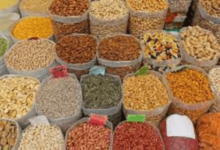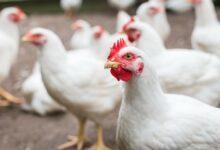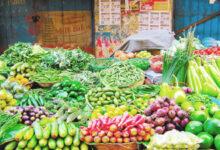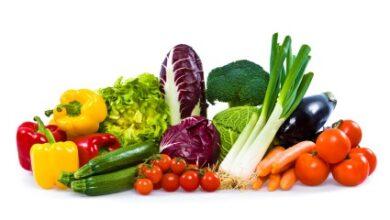10 Challenges of Rice Production in Nigeria
Rice is one of the most consumed cereal in Nigeria. In this article, we will look at 10 Challenges of Rice Production in Nigeria.
Rice a food which is consumed by people of all social class whether rich or poor. Its popularity is probably due to its ease of preparation, high availability, cheapness and its ability to give room for varieties.
👉 Relocate to Canada Today!
Live, Study and Work in Canada. No Payment is Required! Hurry Now click here to Apply >> Immigrate to CanadaRice is a good source of carbohydrate which is broken down inside the body to release energy that helps us carry out our daily activities.
Read Also: Rice Production in Nigeria 2018/2019
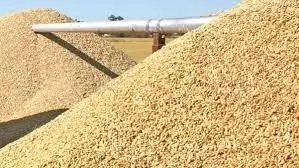
Nigeria is the most populous country in Africa, with a population of over 130 million people. Its domestic economy is dominated by agriculture, which accounts for about 40% of the Gross Domestic Product (GDP) and two-thirds of the labour force.
Agriculture supplies food, raw materials and generates household income for the majority of the people. The external sector is dominated by petroleum, which generates about 95% of Nigeria’s foreign exchange earnings while agriculture contributes less than 5%. Trade imports are dominated by capital foods, raw materials and food.
Read Also: How To Prepare Jollof Rice
Rice has risen to a position of preeminence. Since the mid-1970s, rice consumption in Nigeria has risen tremendously, at about 10% per annum due to changing consumer preferences.
Domestic production has never been able to meet the demand, leading to considerable imports which today stands at about 1,000,000 metric tons yearly. The imports are procured on the world market with Nigeria spending annually over US$300 million on rice imports alone.
In recent years, the government have become more concerned with rice production and have also taken measures to ensure that local rice production within the country is encouraged by discouraging rice importation from foreign countries. Another measure taken to ensure improvement in rice production is the Anchor Borrowers’ Programme (ABP).
👉 Relocate to Canada Today!
Live, Study and Work in Canada. No Payment is Required! Hurry Now click here to Apply >> Immigrate to CanadaThe revolution of rice production in the country was triggered by the Central Bank of Nigeria’s (CBN) Anchor Borrowers’ Programme (ABP).
The Minister of Agriculture, Chief Audu Ogbeh had described the ABP introduced by the Governor of Central Bank of Nigeria (CBN), Mr. Godwin Emefiele as revolutionary. According to Ogbeh, with the ABP, rice revolution has started in the country.
The minister disclosed that there had been tremendous pressure on the government to import rice in order to meet the demand for the commodity, which was an indication that those mounting such pressure never believed that the ABP was working.
Ogbeh said that it does not make any economic sense to continue to spend scare foreign exchange resources on rice importation, when the country had huge potential to grow rice in commercial quantity, noting that each ship load of rice imported into the country displaces 12, 000 farmers from employment.
Since the country has huge potential to grow rice in commercial quantity, what are those challenges that our farmers are facing which has gone a long way to impede rice production within the country? Let’s find out below.
Read Also: How To Start Beans Farming In Nigeria
Challenges of Rice Production in Nigeria
The main challenges encountered by rice processors in Nigeria are to find appropriate solutions for quality rice processing.
1. Lack of good roads in the rural areas
Farmers need good roads in order to safely transport farm inputs, implements and output to the farm and from the farm.
Due to the bad nature of roads available in the rural area where farming is predominant, farmers usually suffer losses due to spillage of farm outputs, agrochemicals and breakdown of tractors.
2. Land tenure and Development
Farmlands in Nigeria are so fragmented that the average farm holding is about 1-2 ha. This perhaps is due to the land tenure system that tends to hinder the ownership of land in the country.
For rice to be grown on a commercial level, a large hectare of land is required. Another issue is the fact that potential land suitable for rice irrigation is still untapped.
3. Low level of income
Rice farmers experience low level of patronage from the Nigerian population. This was due to the high dependency on imported rice and the high prices of the locally made rice.
Since the importation of foreign rice have been put on check, the local rice farmers have experienced increased patronage which is what’s needed for them to stay motivated to do more.
4. Most of our rice farmers are illiterates, unorganized with low-capital base and employed the use of simple and crude tools with little farm mechanization equipment usage.
It is a fact that the integration of mechanization into rice farming will go a long way to speed up the rate at which cultivation is done; improvement in yields will also be experienced.
Read Also: 8 Steps to Start Maize Farming in Nigeria
5. Weeds, pests and diseases problems
Most farmers don’t have the funds required to employ enough labour force to help out on the farm. Weeds though can be taken care of mechanically, is still a problem in rice farming. This is because most farmers don’t have the funds to procure these machines.
Pest and rodents such as rats, grasscutters, caterpillars etc. are destructive to rice. Rice is susceptible to various infection by pathogens such as bacteria, fungi, virus, etc. The cost of protecting the rice from pest, weeds, rodents and diseases is what influences the price of locally made rice.
6. High cost of productive inputs such as seeds, fertilizers and other agrochemicals
The quality of rice produced and offered for sale by farmers will depend on the quality of seeds used and also on how well the rice grasses were taken care of while on the field. In order to achieve high quality yield, fertilizers and agrochemicals such as pesticides, herbicides etc. must be applied.
7. Non –availability/inadequate credit facility to farmers
Farmers need access to loans and credit facilities to help them run their farmland successfully. They need access to funds in order to be able to procure improved varieties of seedlings, fertilizers, pesticides, herbicides and other agrochemicals that are indispensable in a rice farm.
8. In adequate extension services which resulted due to the low ratio of extension worker to farmers.
9. Improper handling/management of soil and water resource.
10. Climatic factors: Climatic factors such as flood, soil salinity and erosion drought and global warming also poses problems to successful rice cultivation.
Read Also: Steps To Start Potato Farming Business In Nigeria
11. Irregular and fluctuating prices of rice grains due to seasonal variation.
12. Lack of good linkage between research institutes and farmers
